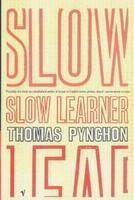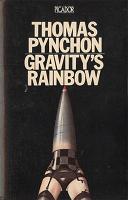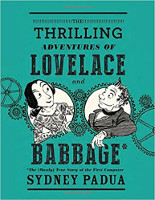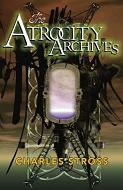 Blindsight is Peter Watts' first stand-alone novel after his much-praised 'Rifters' trilogy. The book was shortlisted for the Hugo Award, but lost out in a rather strong field. It also is Peter's first foray into space – Rifters played in large parts under water (he is a trained marine biologist by previous trade), but Blindsight manages to project the same claustrophobic and slightly haunted feeling – the deep sea and space are not that different from that perspective (although the pressure differential is reversed, of course).
Blindsight is Peter Watts' first stand-alone novel after his much-praised 'Rifters' trilogy. The book was shortlisted for the Hugo Award, but lost out in a rather strong field. It also is Peter's first foray into space – Rifters played in large parts under water (he is a trained marine biologist by previous trade), but Blindsight manages to project the same claustrophobic and slightly haunted feeling – the deep sea and space are not that different from that perspective (although the pressure differential is reversed, of course).
Blindsight is the log book (for want of a better term) of one Siri Keeton, travelling, literally, where no human has gone before. Keeton underwent, as a child, a radical hemispherectomy to get rid of his epilepsy (literally the removal of one side of his brain – yes, that's a realistic and existing medical intervention...). His friend Rob Paglino thinks that what came back from the clinic is not the same person, and, after some thought (because Siri now has to think about everything that concerns humans, and human interaction), Siri agrees. It is the story of what this did to Siri, Siri's parents, and to Chelsea, his girlfriend, one of very few people who still prefer human contact (and sex!) in the first person, and not just in virtuality (yes, the birth rate is dropping radically in Siri's world).
“That distance – that chronic sense of being an alien among your own kind – it's not entirely a bad thing. It came in especially handy when the real aliens came calling.”
All of this is wound through the 'big' story in the book; a rather unusual first contact scenario: in 2082 65'000 'Fireflies', spread around Earth in an even grid, simultaneously burn up in the atmosphere, sending data as they burn. Somebody has just taken our picture, without asking. A modified comet, Burns-Caulfield, sending out a stream of data in an unknown direction is detected in the Kuiper belt. And the first ship with humans on board that reaches that far finds that, further out and out of the ecliptic, there is something else out there: an Oasa object, 10 times the mass of Jupiter, dark, and very hard to detect from Earth. On approaching they are contacted by an entity calling itself 'Rorschach' (yes, it speaks English. Kinda.). And so the crew of modified, bent, damaged, and generally non-standard Humans (by a very charitable definition) and their leader, a Vampire (yes, they have been resurrected. The underlying evolutionary and genetical information is provided. Scary...) set to work. And so does Rorschach.
“Sometimes it seems a though my whole life's been a struggle to re-connect, to regain whatever got lost when my parents killed their only child. Out in the Oort, I finally won that struggle. Thanks to a vampire and a boatload of freaks and an invading alien horde, I'm Human again.”
The book is claustrophobic, and, at least for the first half, written like a scientific thriller. Alien (the original) is a very valid comparison for the feeling of that part, although things get a bit more complex and interesting later in the story. One of the key parts (you might have gathered this already) is the good old discussion of what makes us Human, what makes humans special, and, a bit less common, what good that consciousness of ours is. One of the characters sums it up in a rather interesting form: “Aesthetics. Sentience. Extinction”. Not exactly a cheerful point of view...
I'm never sure if Peter Watts attempts to write Hard SF – the books don't feel like it, but the amount of background reading, (sometimes far-out) scientific theory, and kind of discussions the characters hold suggests to me that, if nothing else, you can take the scientist out of science, but not the other way...
The book contains: Prologue, Story, Notes and References (which was much scaled down for sake of the book's size). Go figure.
Anyway, this is a big big recommendation, for both this book as well as for the earlier series. Get. Read. Enjoy. Write about. Spread the word. This is top stuff, and deserves much more recognition than it gets at the moment.
Oh, and here's a cracker from the literature review:
“At least one theory suggests that while great apes and adult humans are sentient, young human children are not. I admit to a certain fondness for this conclusion; if children aren't non-sentient, they're certainly psychopathic."
Thanks to Tor for the proof copy.
More Peter Watts
Title: Blindsight
Author: Peter Watts
Reviewer: Markus
Reviewer URL: http://skating.thierstein.net
Publisher: Tor
Publisher URL:http://www.tor.com
Publication Date: 2006
Review Date: 101001
ISBN: 9780765319647
Price: USD 14.95
Pages: 384
Format: Paperback, Proof
Topic: SF
Topic: First Contact












